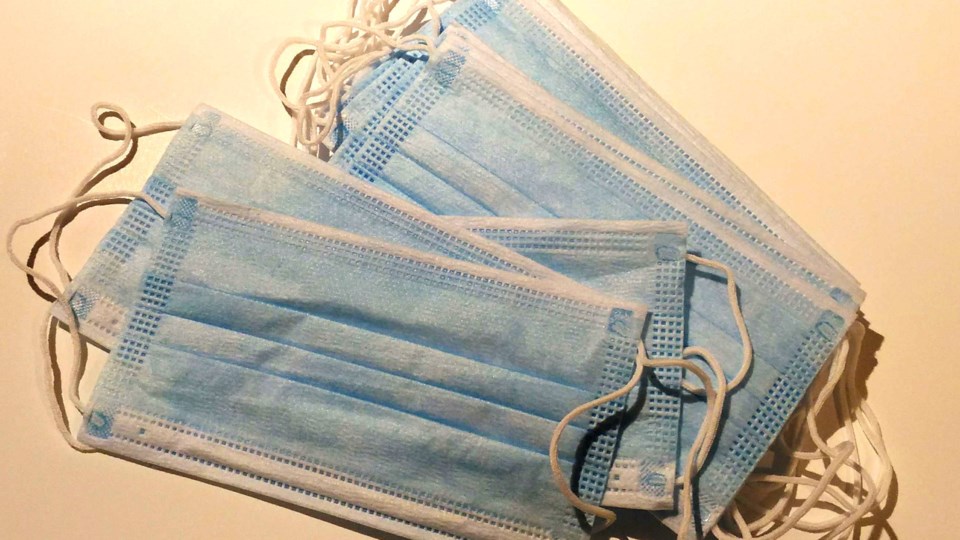WESTLOCK – While a dozen mayors from across the capital region, including neighbouring municipalities like Sturgeon County and the Town of Morinville, have signed an open letter urging Alberta Health Minister Tyler Shandro to implement a vaccine passport, Westlock’s mayor says municipalities can only push so far as the ultimate responsibly lies with the province.
Ralph Leriger said Sept. 9 he was not part of the roundtable of mayors who released the letter two days prior and made it clear he’s not speaking on behalf of council as they’ve yet to discuss it. That said, it’s clear to him and “the medical community that (the current strategy) isn’t working as well as it needs to and that isn’t a surprise to me or anyone else.”
As of Sept. 10, there were 51 active COVID-19 cases in Westlock County for an active case rate of 376.2. per 100,000. Since the start of the pandemic there’s been 500 cases in the Westlock area, with 446 recovering from the virus and three deaths.
“I’ve tried really hard to stay in my lane during this whole thing, but it’s difficult when we let political behaviours influence our decision-making process instead of science,” said Leriger. “I was relieved when the province finally showed up and took some responsibility for some of the things that is their responsibly. Having said that I don’t think the actions they’ve taken are the correct ones.”
The letter, dated Sept. 7, is signed by the mayors of Edmonton, St. Albert, Parkland County, Spruce Grove, Stony Plain, Morinville, Sturgeon County, Strathcona County and the City of Leduc and says a passport is the best way to compel more people to get vaccinated, end the pandemic and fully reopen the economy — the mayors of Beaumont, Devon and Leduc County, whose names also appear on the document, said they had agreed to sign a letter asking for more data for municipalities, but not one that called for vaccine passports.
Premier Jason Kenney has rejected the notion of a vaccine passport, which would require Albertans to show proof of vaccination to access businesses deemed non-essential, a move Ontario, B.C., Quebec and Manitoba have put in place, or are rolling out.
Instead, on Sept. 3, Kenney announced Alberta was implementing a provincewide mask mandate effective Sept. 4 with the exception of schools where masking is still being left up to divisions. The province also implemented a 10 p.m. curfew on liquor sales and began offering $100 gift cards to people who get vaccinated before Oct. 14.
“Together, we have the most citizens currently in hospital and in intensive care. These citizens, their loved ones, and a rapidly growing majority of our community members are looking to you to craft public policy that helps protects people and to demonstrate leadership during these difficult times,” read the mayors’ letter in part. “Residents should not be expecting municipal councils to assume public health policy development and responsibilities. Further, given the reduction in the province’s grant funding to municipalities, we cannot afford to carry the additional financial burdens.”
Leriger says he was buoyed when the masking requirements were reinstated over the weekend as the province, not towns and counties, need to take the lead. Going forward the key to getting past the restrictions is getting more people vaccinated — locally 62 per cent of eligible residents (ages 12 and over) have received two shots of vaccine, compared to 70.9 per cent for the same age group provincewide.
He added that people need to get over the idea that a vaccine passport is be a method of control as everyone has a vaccination record and if you want to travel to certain countries, that record needs to be produced.
“Let’s stop pretending that this is some new way to control us. Everybody has a vaccination record in their medical file. However, having a vaccination record and having that prevent you from getting a job or going to a hockey game, that’s another matter. Those two things need to be separate and there needs to be a distinction,” he said.
Meanwhile there were 679 people in hospital across Alberta due to COVID-19 as of Sept. 10 —of the 154 in ICU, 89 per cent were unvaccinated, or partially vaccinated. Alberta reported nine more deaths from COVID Sept. 9 to bring the total 2,434.
Ultimately to beat COVID-19, Leriger says countries like Canada need to begin donating surplus vaccine to poorer countries to ensure more people are protected.
“At the end of the day we have to do something to increase our vaccination rate … our vaccination rate is not where it needs to be and it doesn’t appear that a $100 enticement has helped any,” he said. “I try my damnedest to think globally and I think part of the story that’s important is that wealthy countries with excess vaccine, need to be thinking really strongly about sending them to South America, Africa, India … COVID-19 is a global issue.
“COVID-19 will never leave us if we don’t think and act globally. We will continue to get variants until we have enough people vaccinated across the globe, not just in this country. I think we’re kidding ourselves to get a third dose so we can go to Arizona for the winter if we don’t address Africa and India especially.”



